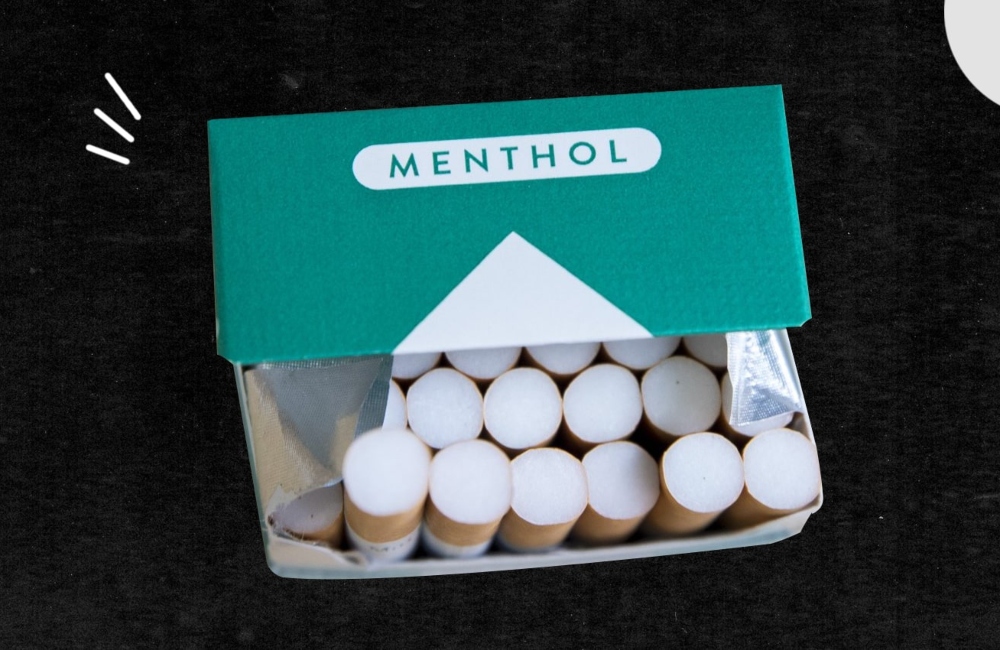










The City University of New York and Columbia University Mailman School of Public Health study found that American adult smokers have been consuming more menthol over the past ten years.
Menthol usage is significantly more prevalent among adult smokers who are younger, from racial/ethnic minority groups, and have mental health conditions. The results are published in the journal Nicotine and Tobacco Research. Approximately two out of every five cigarette smokers frequently use menthol. Compared to past research, more than 80% of Black smokers preferred menthol in 2020, a steady rate.
Renee D. Goodwin, PhD, of the Columbia Mailman School’s Department of Epidemiology, observed that “In 2020, menthol was used by around 50% of smokers who identified as Hispanic, female, between the ages of 18 and 25 and 26 and 34, lesbian/gay, and having mental health issues.”
This indicates that consumption has increased across all categories of the adult smoking population since it is higher than previously reported.”
US Food and Drug Administration has not taken any action despite the Center for Tobacco Products’ declaration that it wanted to develop a product standard that would restrict menthol as a distinguishing flavour in cigarettes. Menthol has been made illegal as a cigarette flavouring in Canada and the UK.
Experts do caution that given the regulatory process required to establish a product standard and the potential for tobacco industry lawsuits, menthol cigarettes will likely remain on the market for a considerable amount of time.
Findings by Goodwin indicate that the planned prohibition by the US Food and Drug Administration on the use of menthol as a distinctive flavour in cigarettes “may have a considerable influence on public health, particularly among adolescents and vulnerable groups.”
For the 2008-2019 and 2020 waves of the National Survey on Drug Use and Health, the researchers looked at nationally representative annual data from 128,327 Americans 18 and older in order to estimate trends in menthol use among adults who smoke cigarettes by sociodemographic, mental health, and substance use variables (NSDUH). Depression was assessed using the DSM-IV criteria for a major depressive episode.
Overall, menthol cigarette usage among smokers grew dramatically from 34% in 2008 to 41% in 2019. 43% of individuals who smoked cigarettes during the preceding month in 2020 reported using menthol.
Adults of colour were more likely than other groups to use menthol (80 per cent). More than 50% of Hispanic women who used menthol were also young (ages 18 to 34), lesbian/gay, very depressed, and cigar smokers. Adults, Hispanics, light cigarette users (1–5 cigarettes per day), and cigar smokers saw a faster rise in menthol intake.
One intriguing finding was that the usage of menthol increased among Hispanic adults over the course of the research (from 34% in 2008 to 48% in 2019 and 51% in 2020), with a quicker increase among Hispanic smokers than among Non-Hispanic White smokers.
Goodwin offers several explanations for why menthol cigarettes are growing more and more popular among Hispanic smokers, noting that there hasn’t been much study done in this area up until recently. “For one, there is proof that menthol cigarettes are being promoted to adult Hispanics more often,” the author writes.
Our study demonstrates persistent and unabated differences in menthol consumption, particularly among people who belong to groups who use cigarettes more often, claims Goodwin.
Data from 2020 show that menthol consumption among smokers has increased over the last ten years across most categories.










